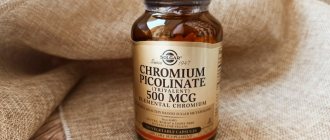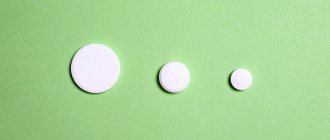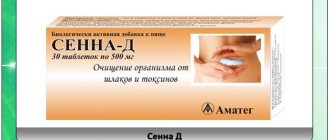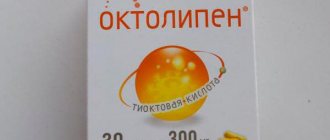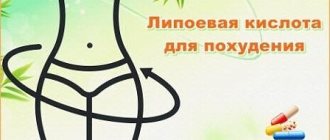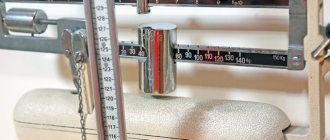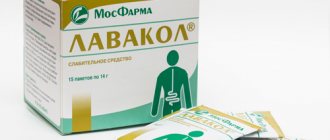In the instructions for medications, this medicinal plant can be hidden under completely different names. Leaf of Alexandria, cassia narrow-leaved or holly, African senna, Egyptian or Meccan. Know that all these are names of the same tropical shrub. Leaves, seeds and fruits are actively used in Eastern folk medicine to treat many diseases. Today, it is widely used for weight loss, as it has a powerful laxative and diuretic effect.
Contraindications
- hypersensitivity to biologically active substances of the drug;
- metrorrhagia, paralytic intestinal obstruction, hemorrhoids, acute inflammatory bowel diseases (Crohn's disease, ulcerative colitis, appendicitis), peritonitis, gastric and duodenal ulcers, gastrointestinal bleeding, rectal fissures, spastic colitis, strangulated hernia, pancreatitis, hepatitis, nephritis, cystitis, abdominal pain of unknown origin, severe water and electrolyte imbalance, nausea, vomiting, diverticulitis, organic liver damage.
Senna leaves res-press.100g in a pack
Name
Senna leaves.
Release form
Vegetable raw materials.
Dosage
100 g. Quantity per package: 1 pc.
Manufacturer
Lektravy Ltd.
INN
Senna leaves.
FTG
Herbal laxative.
Product description
Cylindrical pieces with a diameter of 5 mm, a length of 8-12 mm. The surface is smooth, shiny, less often matte, marbled, uneven at the ends; color ranges from brownish-green to dark green with yellow patches. The smell is weak.
Compound
Senna leaves.
Pharmacotherapeutic group
ATS code A06AB06. Contact laxatives.
Pharmacodynamics
The drug has a laxative effect. The sennosides included in the drug are metabolized by bacteria of the large intestine into an active metabolite (reinanthrone). Mechanisms of action: - stimulation of colonic motility, resulting in accelerated intestinal transit; - inhibition of the absorption of water and electrolytes (Na+, Cl-) by epithelial intestinal cells, increased secretion of water and electrolytes into the lumen of the colon. Defecation occurs 8-12 hours after drug administration, depending on the time required for transport to the colon and metabolism into the active compound.
Indications for use
Short-term use for occasional constipation.
Contraindications
Hypersensitivity to biologically active substances of the drug. Metrorrhagia, paralytic intestinal obstruction, hemorrhoids, acute inflammatory bowel diseases (Crohn's disease, ulcerative colitis, appendicitis), peritonitis, peptic ulcer of the stomach and duodenum, gastrointestinal bleeding, rectal fissures, spastic colitis, strangulated hernia, pancreatitis, hepatitis, nephritis, cystitis, abdominal pain of unknown origin, severe water-electrolyte imbalance, nausea, vomiting, diverticulitis, organic liver damage, spastic constipation, chronic constipation, intestinal stenosis and atony, renal dysfunction. Pregnancy, lactation period, children under 12 years of age.
Precautionary measures
Before starting to use the drug, it is necessary for the doctor to determine the cause of constipation to exclude intestinal obstruction. The drug is recommended to be used only if normalization of stool cannot be achieved by changing the diet or using drugs that increase the volume of intestinal contents. To avoid addiction, the drug should be alternated with other laxatives and the duration of use should be limited to one week. The drug is contraindicated in patients with impaired renal function due to possible electrolyte disturbances. Patients taking cardiac glycosides, antiarrhythmic drugs, drugs known to prolong the QT interval, diuretics, corticosteroids, or licorice root should consult a physician before taking the drug. The drug should not be taken for more than 1 week due to the risk of developing electrolyte imbalance. Long-term use can lead to colon dysfunction (atony) and worsening constipation. After taking the medicine, your urine may turn yellow-brown or red-brown. With long-term use, pigmentation of the colon mucosa (pseudomelanosis) may develop, which usually goes away after stopping the drug. Bleeding from the rectum or failure to have a bowel movement after taking a laxative may indicate a serious medical condition. If symptoms persist while taking the drug or the condition worsens, you should stop taking the drug and consult a doctor.
Use during pregnancy or breastfeeding
Contraindicated.
The ability to influence the reaction rate when driving a vehicle or working with other mechanisms
Studies have not been conducted to evaluate the effect of taking the drug on the ability to drive a car and operate machinery.
Children
Use in children under 12 years of age is contraindicated. Before use in children over 12 years of age, consult a doctor.
Directions for use and doses
Place 1-1.5 teaspoons of cut-pressed leaves in an enamel bowl, pour in 200 ml of boiled water at room temperature, close with a lid and leave in a boiling water bath for 30 minutes. Keep at room temperature until completely cooled, strain, squeeze the remainder into a strained decoction. Bring the volume of the decoction to 200 ml with boiled water. Adults and children over 12 years of age take 1/4-1/2 cup of decoction at night. It is recommended to take the smallest dose sufficient to achieve the desired effect, no more than 2-3 times a week. It is not recommended to use the drug for more than one week. The duration of use is determined by the attending physician.
Overdose
The main symptoms of overdose are abdominal pain and severe diarrhea followed by loss of fluid and electrolytes. Diarrhea can lead to hypokalemia, cardiac disorders and muscle weakness, especially when taken concomitantly with cardiac glycosides, diuretics, corticosteroids or licorice root preparations. Treatment of overdose should include replacement of fluid and electrolyte losses. Blood electrolytes should be monitored, especially potassium, which is especially important in the elderly. With prolonged use of large doses, toxic hepatitis may develop.
Side effect
Hypersensitivity reactions (itching, urticaria, rash), discomfort, spastic abdominal pain, dyspepsia, flatulence, tenesmus, loose, watery stools. In case of overdose, water and electrolyte imbalance, albuminuria, and hematuria may develop. If any adverse reactions occur, including those not listed in this instruction, you should stop using the drug and consult a doctor.
Interaction with other drugs and other types of interactions
Accelerated transit of intestinal contents may lead to decreased absorption of drugs taken orally. Electrolyte imbalance (hypokalemia) may interfere with the effects of cardiac glycosides, antiarrhythmics (eg, quinidine), and drugs that prolong the QT interval. The simultaneous use of diuretics, corticosteroids, and licorice root increases the likelihood of developing electrolyte disturbances.
Best before date
3 years. Do not use after the expiration date indicated on the package.
Storage conditions
Store at room temperature (15-25°C), protected from moisture, light and out of reach of children. Prepared aqueous extract - in a cool (8-15°C) place for no more than 2 days.
Package
100 g per pack with inner bag.
Vacation category
Over the counter.
Buy Senna leaves res-press.100g in a pack in a pharmacy
Price for Senna leaves cut-press. 100g in a pack
Instructions for use for Senna leaves res-press. 100g in a pack
Mode of application
Place 1.5-2 teaspoons of cut-pressed leaves and fruits in an enamel bowl, pour in 200 ml of hot boiled water, close the lid and leave in a boiling water bath for 30 minutes. Leave at room temperature until completely cooled, strain, and squeeze the remainder into the resulting decoction. Bring the volume of the decoction to 200 ml with boiled water. Adults take ⅓-½ glass warm at night or one tablespoon 1-3 times a day. Children over 12 years old - from 1-2 tablespoons to ¼ cup at night.
The duration of treatment is determined by the doctor individually for each patient. It is recommended to shake the infusion before use.
Effect on the body
You should not hope that losing weight with senna will relieve you of fat reserves on your sides, stomach and other problem areas. All it will do is thoroughly cleanse the intestines, liver, and the body as a whole from waste, toxins, free radicals, radionuclides, and fluid stagnant in the tissues. Thanks to this, in the first few days of active use of drugs and decoctions based on this herb, you will lose up to 5 kg. However, this is where healthy weight loss ends.
After the harmful substances are gone and the laxative effect continues to act, healthy cells and tissues of the body will be consumed. The plant will begin to release beneficial vitamins and microelements. It is possible to lose another 3-4 kg, but at the expense of your health, because the processes of dehydration and exhaustion will start. That is why this herb is criticized by doctors and nutritionists.
If you need to lose 3-4 kg within 5-7 days, you can drink drugs and decoctions from senna without fanaticism. But keep in mind that your fat on your tummy and buttocks will not go away. For total weight loss, it is better to choose some other method that is safer for your health.
Senna seeds, fruits and leaves are used to prepare pharmaceutical preparations and homemade drinks. They contain glycosides, organic acids, flavonoids, alkaloids and resins. This chemical composition determines the medicinal properties of the herb. Make no mistake: none of them burn fat or block hunger. On the contrary, numerous experiments have shown that this plant stimulates and does not reduce appetite.
Business card. Experts do not recommend actively using senna for weight loss also because for us it is an exotic plant. Its habitat is Asia, Africa, India, Sudan, Somalia, and the Arabian Peninsula.
Note!
The description of the drug Senna leaves and fruits 100g on this page is a simplified author’s version of the apteka911 website, created on the basis of the instructions for use.
Before purchasing or using the drug, you should consult your doctor and read the manufacturer's original instructions (attached to each package of the drug). Information about the drug is provided for informational purposes only and should not be used as a guide to self-medication. Only a doctor can decide to prescribe the drug, as well as determine the dose and methods of its use.
Side effects
As numerous studies have shown that senna has been incessantly subjected to recently, regular use of drugs and drinks based on it ends not only in weight loss, but also in a host of side effects. If the dosages are minimal and the duration of the course does not exceed a week, there is a chance that you will not encounter these complications. Still, it is better to be prepared for such a turn of events.
Among the troubles that can await you on this thorny path to weight loss:
- itching and urticaria - this is how an allergic reaction to anthraquinones (glycosides) contained in senna in huge quantities most often manifests itself;
- severe diarrhea, which can result in anal fissures, inflammation of the anus or dehydration;
- severe pain, cramps, colic in the abdomen;
- a malfunction of the organs of the excretory system, which will not have time to remove everything that senna so carefully filters out in the body - as a result, problems with the kidneys and gall bladder cannot be avoided;
- digestive disorders, and here the clinical picture can be very diverse: from bloating and flatulence to nausea and vomiting;
- dehydration;
- exhaustion;
- headaches and dizziness;
- arrhythmia and seizures;
- confusion;
- loss of potassium, which can negatively affect the condition of the cardiovascular system;
- damage to the intestinal myenteric plexus.
If you experience any of these side effects from losing weight with senna, you should stop immediately. The further development of each of these symptoms is fraught with health complications, which will subsequently have to be addressed with medication.
Peculiarity. Another side effect that scares many is brown urine. However, of all the consequences, it is the most harmless to health.
Review of drugs
Due to the fact that you cannot collect senna yourself, since it grows in eastern countries, there is only one way out - to purchase drugs based on it. It is better to do this in pharmacies, where all products are at least certified and are of high quality. If you order products online, you may end up with a counterfeit product. Therefore, treat the selection and purchasing process with maximum responsibility.
- Pills
Names of laxative drugs with senna: Regulax, Senade, Senadexin, Antrasennin, X-Prep, Glaxenna, Regulax, Senalex, Tisaseni, etc. The packages may contain tablets and capsules (30-1,000 pcs.). The maximum dosage is 4 per day. The course is no more than 1 week.
- Dry herb/extract
It is produced in pure form or with small admixtures of other exotic herbs with identical effects. Packaged in paper bags 25-300 g. In this form, senna extract is brewed with boiling water according to a special recipe - a laxative infusion, decoction or tea is obtained. The maximum dosage is no more than 1 glass per day, which can be divided into several parts.
- Tea
It is a powder in filter bags. Recommended dosage - 2 pcs. for 1 glass.
Keep in mind. Preparations based on senna are gradually withdrawn from pharmacy shelves and discontinued. The fact is that an increasing number of studies prove the toxicity of this plant and the undesirable use of its extracts not only as a means for weight loss, but also for the treatment of any other diseases.

